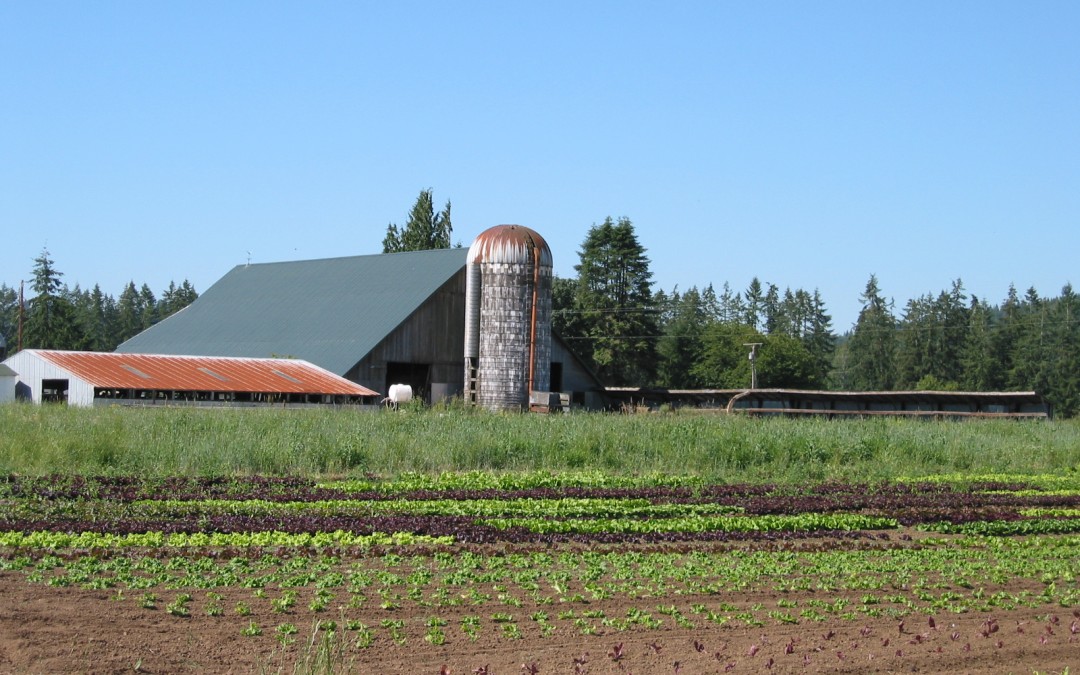At the April 22nd Chehalis Basin Partnership meeting, guest speakers shared perspectives on challenges and opportunities for the agriculture industry in the Chehalis Basin. Full meeting minutes available here.
Brian Thompson from the Lewis County Farm Bureau gave an overview of the value of agriculture industry in Chehalis River Basin. He said that accounting for direct revenue and the “economic multiplier” effect of locally jobs, agriculture provides approximately $650 million in annual revenue . Not all producers complete their reporting, so this number should be considered conservative.
Annie Salafraky and Susan Ujgic from Helsing Junction Farm shared perspectives on the organic agriculture sector. Charissa Waters from Thurston County explained the Voluntary Stewardship program and its goals for protecting streams and wetlands while keeping agriculture viable. Bob Amrine from the Lewis County Conservation District shared tools the District uses when working with farmers. All speakers provided insight on the following questions:
- What makes the Chehalis a great place for agriculture? The Chehalis Basin has fertile soils, a mild climate and is close to large population centers as markets.
- What are some challenges to the future of the agriculture industry? Water: New farmers that want to take up irrigated agriculture can’t get new water rights. They need to wait for land to come for sale that has an existing water right with it. An unpredictable climate, including drought, poses a threat to agriculture. Helsing Junction Farm irrigates, and was only able to make it through the 2015 drought through improved irrigation efficiency and soil protection techniques. Economics: Agriculture is a business and has to make money to be viable. It’s expensive to run an agricultural business and returns are relatively low. Regulations: Agriculture is tied to the land, and thus is sensitive to regulations around natural resources.
- What are some ways challenges to agriculture can be overcome? Both Mr. Thompson and Ms. Salafraky identified a need for more ways to ship and process agricultural products locally. A place for trucks to deliver their products to a train terminal would facilitate shipping, as would local grain elevators and grain mills. Farmers can help each other by sharing information. The NRCS provides helpful resources on irrigation and farm management. Community members can support smaller farms and local agriculture by buying a Community Supported Agriculture (CSA) share. Smaller farms can adapt to changes in markets and climate through switching out the types of crops they produce in a given season.Voluntary Stewardship Program is intended to provide workable solutions for keeping agriculture on the land and prevent conversion to other more intensive land uses.Mr. Amrine identified the Conservation Reserve Enhancement Program as a way that farmers can protect streams on their land while not losing income from that land going out of production
For more information:
- Presentation slides from this meeting are available on the Chehalis Basin Partnership website
- Voluntary Stewardship Program
- Conservation Reserve Enhancement Program

